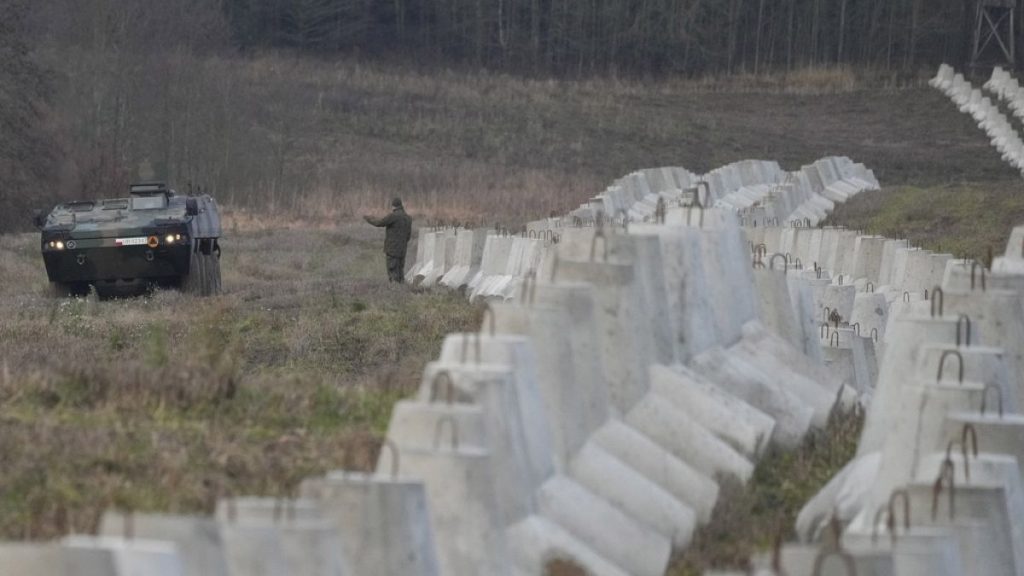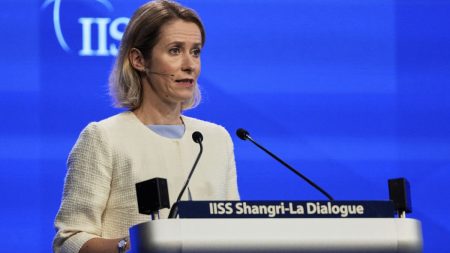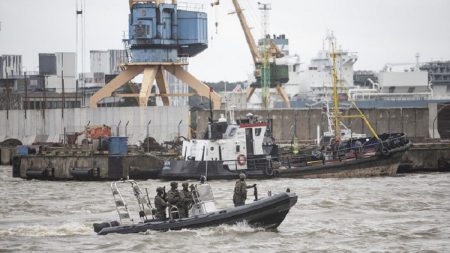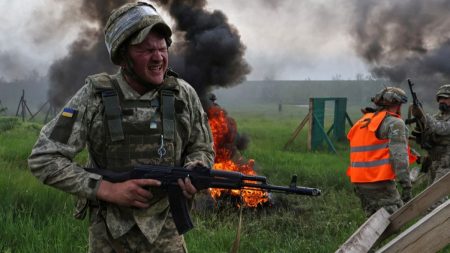Poland’s Prime Minister Donald Tusk has recently undertaken a crucial visit to the border with the Russian exclave of Kaliningrad, focusing on the inspection of newly constructed military fortifications. This visit is particularly significant as it precedes Poland’s impending assumption of the rotating presidency of the European Union, bringing with it heightened responsibilities and expectations. Polish officials emphasize the necessity of fortifying European defenses in response to persistent Russian aggression, a sentiment amplified by concerns surrounding the incoming administration of Donald Trump in the United States, which may exhibit a reduced commitment to Europe’s security. As a proactive measure, Poland has initiated the construction of the “East Shield” military system this year, designed to extend approximately 800 kilometers along its borders with Russia and Belarus.
The geopolitical landscape necessitates these fortifications, especially amid accusations from Western officials that Russia is engaged in a series of hybrid attacks against the West. These actions allegedly include sabotage, manipulation of migration, disinformation campaigns, and other forms of hostile intervention. Tusk’s statements reflect this urgency, as he highlighted during a recent news conference the importance of maintaining a well-guarded Polish border to deter individuals with malicious intentions. His sentiments were echoed in a social media post, where he expressed a sense of security while standing near the newly erected anti-tank barriers. This project is being framed not only as a defensive strategy for Poland but as a broader investment in regional stability and peace.
Poland’s historical context also plays a crucial role in the motivations behind these fortifications. The nation has faced a tumultuous history characterized by aggression from neighboring countries, and this has shaped its contemporary security policies. Consequently, Poland is positioning itself as a pivotal voice for security within Europe, particularly at a moment when traditional powerhouses like France and Germany are grappling with their own domestic political challenges. As evidence of its commitment, Poland is projected to allocate 4.7% of its gross domestic product to defense in the coming year, a move that cements its status among NATO allies as a leading nation in defense expenditure.
The East Shield project is estimated to cost approximately 2.35 billion euros and aims to create robust military infrastructure at the easternmost borders of both the European Union and NATO, encompassing borders with Russia, Belarus, and Ukraine. Tusk indicated a strategic vision for the initiative that extends beyond Poland’s immediate needs; he plans for the fortifications to eventually provide security to the Baltic states of Estonia, Latvia, and Lithuania. The intent behind these developments is twofold: to deter potential aggressors and to inspire confidence among European allies in Poland’s ability to lead in regional defense matters.
In addressing the nature and scope of the East Shield, Tusk underscored that the fortifications would feature a combination of visible and hidden elements designed for optimal security. The construction includes not only anti-tank barriers known as “hedgehogs,” which will synergistically work with natural defenses like ditches but also modern technology in threat reconnaissance and detection systems. Additionally, Tusk outlined plans for establishing forward operating bases, logistics hubs, warehouses, and deploying advanced anti-drone systems, which showcases the comprehensive approach Poland is taking towards national security.
Ultimately, Tusk’s fortification initiative is about more than mere military defense; it encapsulates a broader narrative of resilience and determination within Poland in the face of historical vulnerabilities. He has expressed aspirations that these advancements would not only foster a sense of safety among Polish citizens along the eastern border but also serve as a model for the rest of Europe. The ongoing developments are closely monitored by other European nations, hinting at a collaborative framework for addressing security challenges stemming from Russian actions. In a shifting global landscape, Poland’s commitment to defense investments signifies its pivotal role as a guardian of stability in Eastern Europe.










